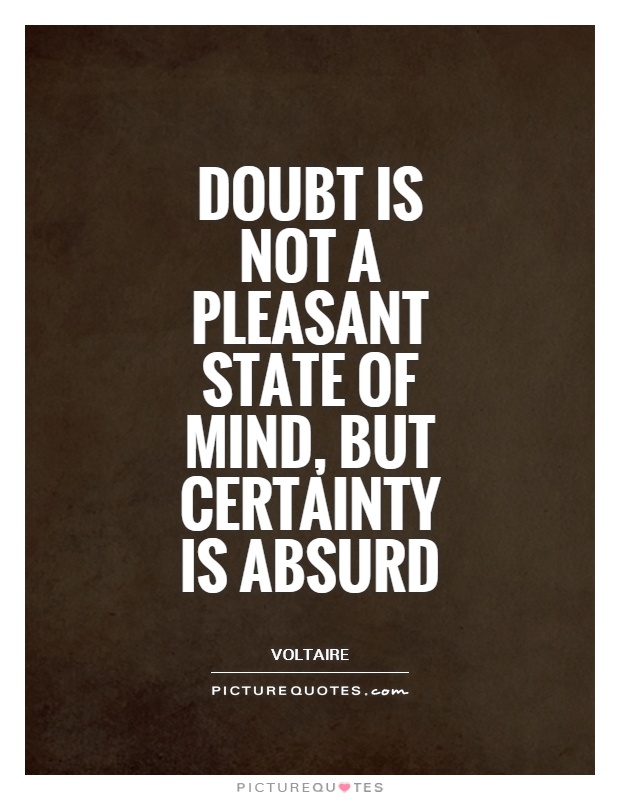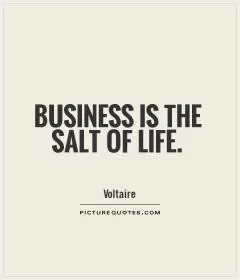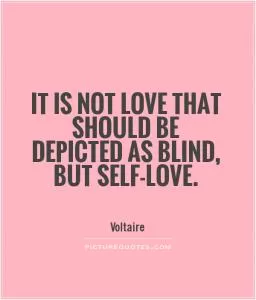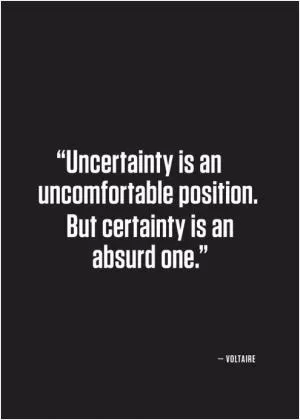Doubt is not a pleasant state of mind, but certainty is absurd

Doubt is not a pleasant state of mind, but certainty is absurd
Voltaire, the famous French philosopher and writer, is often quoted as saying, "Doubt is not a pleasant state of mind, but certainty is absurd." This statement reflects Voltaire's belief in the importance of critical thinking and skepticism in the pursuit of knowledge and truth.In the context of Voltaire's philosophy, doubt is seen as a necessary and even beneficial state of mind. Doubt encourages us to question our assumptions, challenge our beliefs, and seek out evidence and reasoning to support our conclusions. By embracing doubt, we open ourselves up to new ideas and perspectives, and we become more open-minded and intellectually curious.
On the other hand, certainty is viewed as absurd by Voltaire because it implies a closed-mindedness and a refusal to consider alternative viewpoints. When we are certain of something, we are less likely to question our beliefs or seek out new information that might challenge our assumptions. This can lead to intellectual stagnation and a lack of growth and development.
Voltaire's emphasis on doubt and skepticism is reflected in his own writings, which often critiqued established beliefs and institutions. In works such as "Candide" and "Letters Concerning the English Nation," Voltaire challenged religious dogma, political corruption, and social injustice. By encouraging his readers to question authority and think for themselves, Voltaire sought to promote a spirit of intellectual independence and free inquiry.












 Friendship Quotes
Friendship Quotes Love Quotes
Love Quotes Life Quotes
Life Quotes Funny Quotes
Funny Quotes Motivational Quotes
Motivational Quotes Inspirational Quotes
Inspirational Quotes